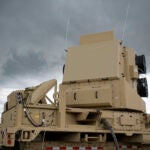
The nearly two-decade old BioWatch biological threat detection and warning system is a failure and various attempts to replace it, including the new Biodefense in the 21st Century (BD21) effort, have failed or are failing as well, so the U.S. government needs to develop a new approach to acquire and deploy technology that could rapidly detect a biological attack in the nation’s urban areas to enable a quick response, says a new report from a bipartisan commission. The Bipartisan Commission…

 By
By 










